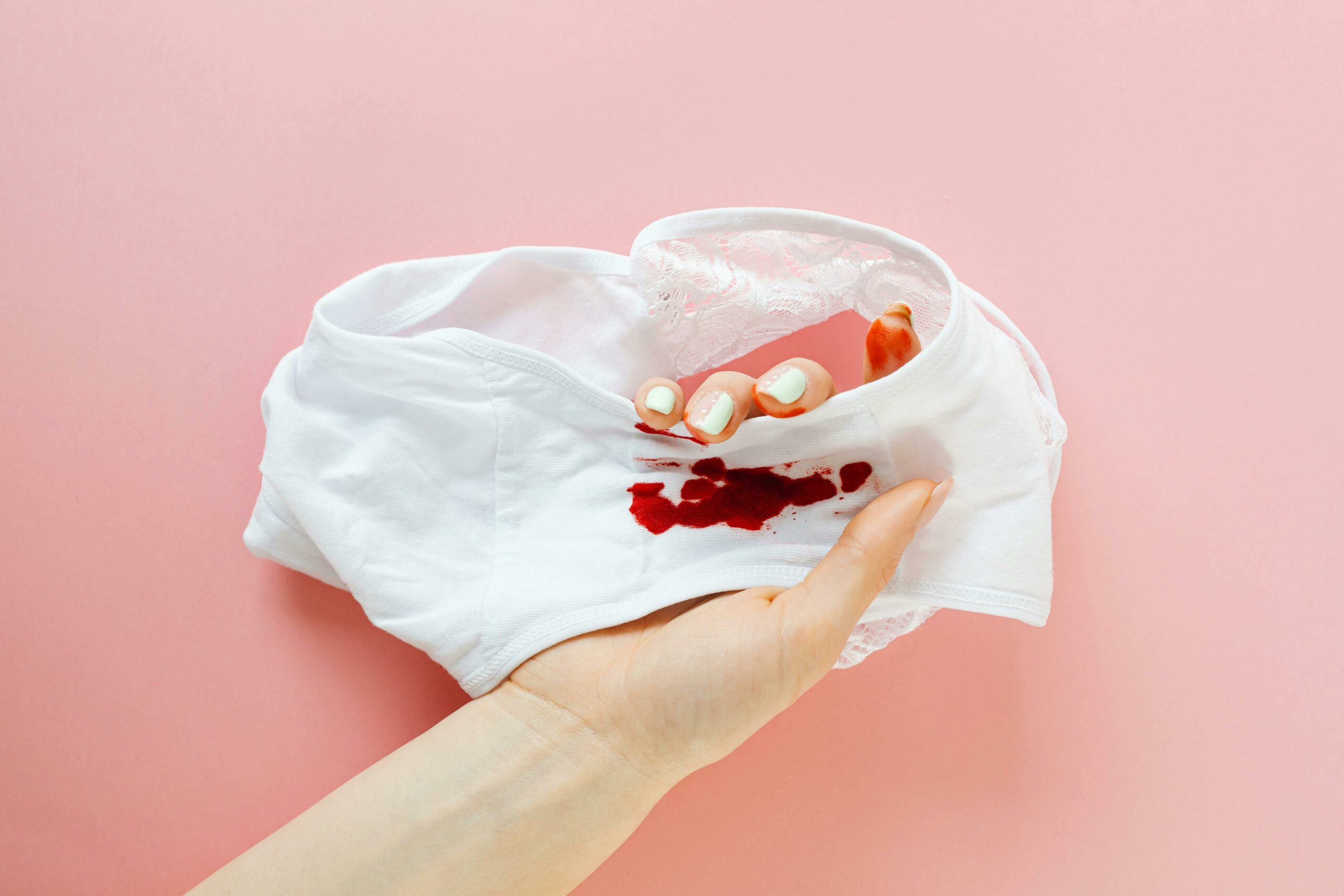
Can stress cause heavy periods?
In this article
What's the lowdown?
Our menstrual cycles are kept healthy and regular through a delicate balance of hormones
These hormones can be disturbed by stress and anxiety, leading to a whole variety of symptoms – be it irregular bleeding, a difference in your cycle length, heavy periods, or lighter periods
Learning to manage stress levels could be the key to more predictable and less disruptive periods
Tranexamic acid is one of the most effective options for reducing a heavy flow
You should see a doctor if heavy period are impacting your every day life
Life can be really stressful. From the spiralling cost of living to the global climate emergency – we’re working harder than ever and under increasingly challenging circumstances. So it’s little wonder that in the past year, 74% of people in the UK have felt so stressed they have felt overwhelmed or unable to cope.
Stress can affect our bodies in many different ways. One impact of stress is that your body triggers a huge increase in the cortisol hormone to help you to tackle the situation. Cortisol can impact the levels of our reproductive hormones. In this article we are going to look at how stress can wreak havoc on our menstrual cycles. And, more specifically, can stress lead to bleeding heavily on a period.
What is stress?
Everybody experiences stress at some point in their lives. In fact, at a low level, stress can be motivational and help us to accomplish more. In a nutshell, our body reacts to feeling threatened or under pressure – and stress is the result.
However, there’s a fine balance. Excessive stress can be harmful to our mood and our bodies. Eventually, this can lead to burnout (physical, emotional and mental exhaustion), if you experience stress over a prolonged period.
What is anxiety?
Anxiety shares similar physical and emotional responses as stress but there is a key difference. Stress is in response to external causes such as an untenable workload or relationship difficulties. Anxiety is the internal response to stress, usually described as a ‘persistent feeling of apprehension or dread’ to scenarios in life that are not actually threatening. Also, you can still experience anxiety long after the stressful event has passed.
The menstrual cycle and stress
Studies show that stress has a negative effect on the menstrual cycle. This is because the hormones that control the menstrual cycle are affected by cortisol, which is released when you’re experiencing stress.
As a result of the delicate balance of hormones changing, your period can be affected in a few different ways. The most common responses to stress are missed, delayed or postponed, very light or irregular periods.
However, it can be quite difficult to clearly assess the effect of stress on the menstrual cycle in studies, because most research papers measure stress levels by self-reporting questionnaires. This is probably why there is such a range of results.
Is there a link between stress and heavy periods?
Research is mixed here, with some sources stating that stress can cause heavy periods. One particular study concluded that high-stress levels can lead to longer cycles with heavier bleeding. However, most research tends to suggest that most often stress causes irregular periods or painful periods.
So, to be frank, from the research it looks like we can’t yet identify the exact link between stress, menstrual irregularities and heavy periods. But, it certainly appears possible that changes such as heavier bleeding could certainly occur as a result of stress.
In any case, if you notice that your periods are heavier or more unpredictable, please don’t assume that this may be due to any stressful circumstances occurring in your life without proper investigation or medical advice.
Can stress change the length of a menstrual cycle?
Some studies suggest that stress can have an effect on menstrual cycle length. Most commonly, this appears to be a shorter menstrual cycle length and cycle length irregularities in general. But there is also evidence suggesting that stress can cause longer cycle lengths too.
Can stress cause painful periods?
The studies are a bit clearer here, phew! Pain is one aspect of the menstrual cycle which seems to have a strong link to mental wellbeing. Lots of studies show that stress can cause painful periods.
In fact, one research paper showed that people who experienced stress 2 weeks before their periods were due were 2 to 4 times more likely to experience moderate to severe period pains. Pretty mind-blowing stuff. More specifically, one study showed that stress experienced in the first part of the menstrual cycle (follicular phase) was more likely to lead to painful periods than stress felt in the second part of the cycle (luteal phase).
How to manage stress around the time of your period?
There are loads of lifestyle tips which you can test out, to try to minimise stress around the time of your period. Not only should this help your general wellbeing, but can hopefully reduce the likelihood of stress related menstrual disturbances.
Ways to manage your stress include:
- Regular exercise
- Healthy diet
- Plenty of sleep (aim for 7-8 hours of shut eye a night)
- A support network of close friends and family to confide in
- Reduce alcohol intake
But, one last point – please don’t be too hard on yourself! If you don’t feel up to exercising, or you have an insatiable chocolate craving, that’s totally fine..
How to treat heavy periods
In some cases, medication is not needed and the lifestyle changes may be able to make your flow more manageable. However, the types of treatments that you could be prescribed are:
- Some contraceptives can help with heavy bleeding, such as the combined contraceptive pill
- Anti-inflammatory painkillers e.g. mefenamic acid or naproxen which can now be purchased over the counter from pharmacies under the brand name Ultravana
- Tranexamic acid can help to reduce the amount of bleeding by between 26-60% and is more effective than many of the other alternatives including non-steroidal anti-inflammatory painkillers. Plus, the side effects tend to be pretty mild. Tranexamic acid is now available to buy over the counter from pharmacies — just ask for Evana Heavy Period Relief tablets.
When to see a doctor about heavy periods
If you’ve been experiencing heavy periods for some time, and they mean that you have to make changes to your daily life – definitely talk to a healthcare professional, like your GP.
Similarly, if you are in a lot of pain or you notice irregular bleeding, speaking to a healthcare professional would be the best bet.
See a doctor if:
- You have to change period product every 1-2 hours
- You leak through clothes regularly
- You lose blood clots bigger than 2.5cm
- You have symptoms of anaemia
- You bleed in between periods
- You bleed after sex
If you have any burning questions about contraception or heavy periods, book an appointment with one of The Lowdown’s women’s health GPs – they can talk you through a range of management options!
One final tip: make sure you jot down any patterns around your bleeding. Building up a few cycles worth of information will be a really useful tool to take to your GP!
Our medical review process
This article has been medically reviewed for factual and up to date information by a Lowdown doctor.






